Feature image via wikimedia.
This piece was originally published on 3/6/2017.
George Floyd was murdered on May 25, 2020, and we stand in unequivocal support of the protests and uprisings that have swept the US since that day, and against the unconscionable violence of the police and US state. We can’t continue with business as usual. We will be celebrating Pride as an uprising. This month, Autostraddle is suspending our regular schedule to focus on content related to this struggle, the fight against white supremacy and the fight for Black lives and Black futures. Instead, we’re publishing and re-highlighting work by and for Black queer and trans folks speaking to their experiences living under white supremacy and the carceral state, and work calling white people to material action.

Every time the Trump administration does something particularly enraging (so, about five times a day), I watch a gif of white supremacist Richard Spencer getting punched in the face. It reassures me that I’m not the only one at a personal boiling point with conservative rhetoric and policies, nor am I the only one ready to resort to unpopular tactics to get my point across.
With so many civil liberties under threat, it can be tempting to let our impatience for change push us to recklessness. To sign on to the first idea that’s presented, without necessarily considering whether it is truly inclusive. One of the main criticisms toward the Women’s March, for example, was that many attending had never felt compelled to stand beside underprivileged groups in the past. Many argued that creating a new movement instead of lending support to existing ones only further silenced disenfranchised groups. Education is the only way to understand this criticism and be a true accomplice in these movements.
The following list provides background on some of America’s resistance movements and resources to help us move forward in a more inclusive manner.
Civil Disobedience and Other Essays by Henry David Thoreau
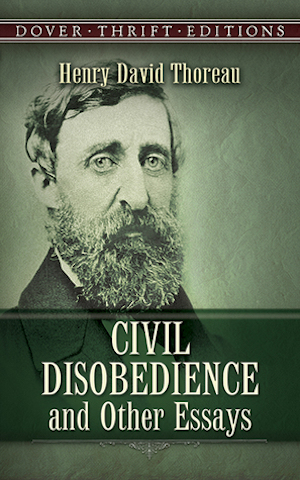
Written in outrage against slavery and the Mexican-American war, Thoreau’s “Civil Disobedience” essay inspired leaders like Ghandi and Dr. Martin Luther King to carry out non-violent tactics against their oppressive governments. A fairly short read, this essay collection is a great place to begin your studies. “Walking” has since been recognized as one of the pioneering documents in the conservation movement.
Freedom’s Daughters by Lynne Olson
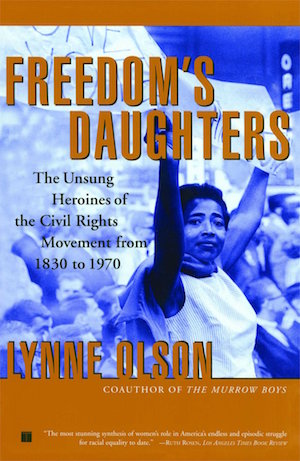
One of the primary criticisms of the Civil Rights movement has been its lack of recognition towards the women who helped make their progress possible. Despite their integral place in launching movements like the Montgomery Bus Boycott, women were rarely given the stage to speak their truth. In Lynne Olson’s “Freedom’s Daughters” she tells the stories of women that history often overlooks, dating pre-Civil War to 1970.
The New Jim Crow by Michelle Alexander
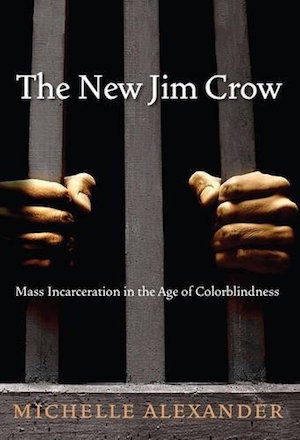
If you’re having trouble understanding the far-reaching consequences of systemic oppression and how it weaves its way through every facet of American life, The New Jim Crow by Michelle Alexander is a good place to start. The book explores how the prison industrial complex and the War on Drugs have legalized the persecution of POC and explains why tasking Obama with dismantling racism was an impossible errand.
The Fire This Time: A New Generation Speaks About Race, edited by Jesmyn Ward
Inspired by James Baldwin’s seminal book The Fire Next Time, National Book Award winner Jesmyn Ward shows a new generation how true his words still ring more than 50 years later with her collection of essays and poems, The Fire This Time. The text is split into three parts that tackle our history, current predicament and hopes for the future, with contributions from social critics like Keise Laymon, Isabel Wilkerson and Rachel Kaadzi Ghansah.
Freedom Is a Constant Struggle by Angela Davis
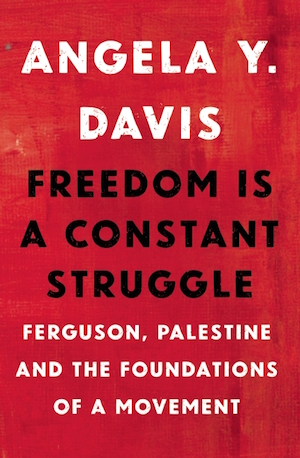
Released this year, renowned civil rights activist Angela Davis’ latest book, Freedom Is a Constant Struggle, dissects the legacies of past resistance movements and reflects on how they can inform our current efforts. Though heavy with research and statistics, the book clocks in under 200 pages, making it a reasonable jumping off point for understanding the intricacies of systemic racism and how far it reaches. Whether you’re a seasoned protester or just joining our ranks, Davis breaks down how you can assist movements on an individual level.
Forcing the Spring by Jo Becker
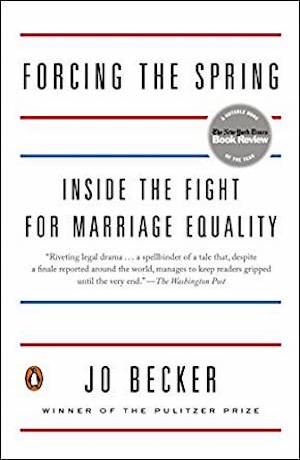
By no means a comprehensive account of the fight for marriage equality in America, Jo Becker’s Forcing the Spring zeroes in on one of the most defining court cases of our generation. She follows the aftermath of California’s Proposition 8, which failed to pass in 2008. It provides a behind-the-scene look into the five-year legal drama that ensued and reflects on how quickly public opinion shifted.
Brother, I’m Dying by Edwidge Danicat
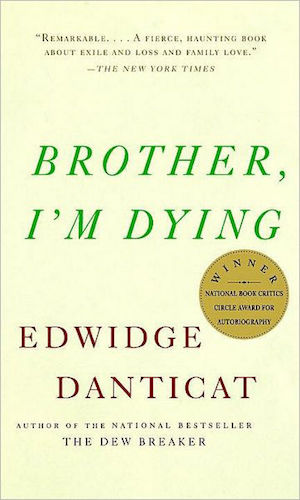
Brother, I’m Dying is a powerful family memoir that honors the sacrifices immigrants are so often forced to make and the tragedies they incur along the way. Avoiding sentiment, the biography places a microscope over an immigration case that made headlines when author Edwidge Danicat’s Uncle Joseph was detained by US customs en route from Haiti.
Whipping Girl: A Transsexual Woman on Sexism and the Scapegoating of Femininity by Julia Serano
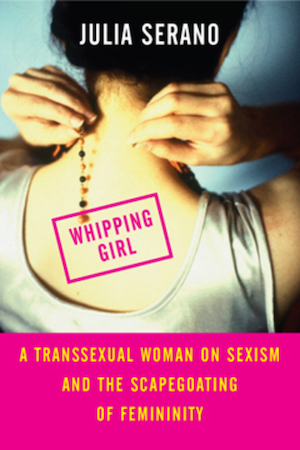
Julia Serano takes so-called feminists to task in her personal manifesto Whipping Girl, which chronicles her experiences as a lesbian transgender activist and professional biologist and reflects on how those paths shaped her life pre- and post-transition. Serano’s background as a professional biologist allows her to seamlessly bridge the gap between social and biological perspectives on gender, where she criticizes our artificial use of “feminine” and debunks persisting myths about transsexuality.
Excluded: Making Feminist and Queer Movements More Inclusive by Julia Serano
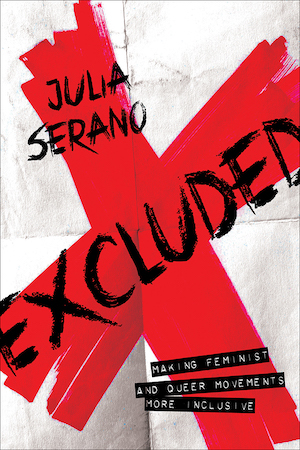
After you’ve finished Whipping Girl, be sure to pick up Serano’s follow up text Excluded, which criticizes queer activists for policing gender and sexuality and reflects on where these assumptions stem from. In Excluded, Serano advocates new ways of approaching sexuality, gender and sexism inclusively.
The Story of Jane: The Legendary Underground Feminist Abortion Service by Laura Kaplan
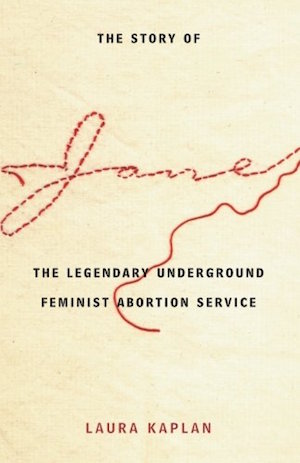
From 1969 until the U.S. Supreme Court handed down its Roe v. Wade decision legalizing abortion, a brave group of Chicago feminists provided illegal access to abortions for thousands of women under the pseudonym “Jane.” Laura Kaplan, who joined Jane in 1971 as a counselor, draws from personal recollections and interviews with Jane members and clients and the doctors who performed the abortions to provide a comprehensive history of this radical group. Understanding the important role Jane played in women’s history will prepare us as we continue to fight for women’s right to choose.
Criptiques by Caitlin Wood
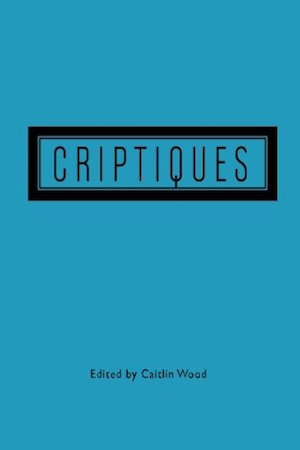
Criptiques is a thought-provoking collection of essays from a diverse group of disabled writers who offer their experiences on gender, sexuality, disability culture, ableism, and more. Featuring the work of writers like Elsa S. Henry, Ibby Grace, Leroy Moore, Anna Hamilton, Rachel Cohen-Rottenberg, Criptiques is a great resource for learning more about disability activism and justice.
By no means exhaustive, this list is a great primer for understanding the nuances within our current resistance movements and how to be an effective ally. Is there anything you’d like fellow protesters to read before joining the cause? Drop a link in the comments below!


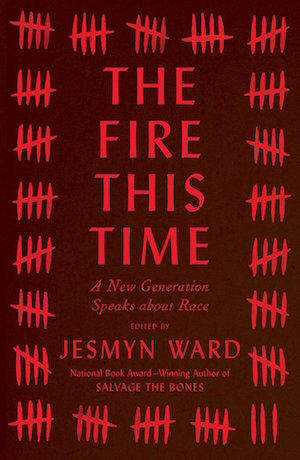

??????
Thank you!! So much to read & thanks for keeping The New Jim Crow on ppl’s lists. Because I know there are other readers in Ypsilanti & Southeast Michigan, I want to share my excitement about this lovely intro to Underground Railroad history in Ypsilanti/SE MI. http://markmaynard.com/2014/11/exploring-ypsilantis-place-on-the-underground-railroad-part-one/ It highlights Isa Stewart, Asher Aray, HP Jacobs, and other black leaders in Ypsi who remind me a bit of some people working today (including the art teacher who led the MLK day march and the black history mural projects here, one of which I believe includes Isa Stewart, and the other is of HP Jacobs). It also mentions a white woman who got stuff done here in Ypsilanti (she was so convinced of people’s humanity that the Quakers asked her to leave), Laura Haviland and links to her biography. I found it really helpful to read a specific story about how the the community right where I live came together to protect a family from a slave catcher who was emboldened under the Fugitive Slave Act – fairly reminiscent of protecting people from ICE.
I’ve leaned heavily on Bayard Rustin’s edited collection of letters, called I Must Resist. Its lessons probably overlap with other books here, but it helped me internalize how continuous and messy and fragile and strong resistance is. It really hit me how the Montgomery bus boycotts was constantly about to fall apart but people kept pitching in to keep it going. I learned a lot from how Rustin spoke with his fellow people in prison and his oppressors in prison, and how resisting war (including WWII) as a pacifist, nonviolent resistance to white supremacy, and being gay all interlinked all the time for him.
Now I’m going to go read Freedom Is A Constant Struggle.
I just picked up I Must Resist from the library, I can’t wait to dive into it.
The New Jim Crow was a wonderful book. I went to hear Michelle Alexander speak at Wake Forest. I sort of new a lot of the stuff in the book but there was so much I still had to learn. I’m still learning. Being a white girl that always got the benefit of the doubt when police were involved during my misspent youth I didn’t really understand how insidious it is. I know I still can’t fully understand but I’m at least willing to listen.
In addition to books that Danielle suggested, depending on your class experience & other things about you I have no way of knowing, I’ll offer these titles: The Color of Privilege by Aida Hurtado, specifically the first essay in it, was SO HELPFUL for unlearning the white middle class feminism I grew up with. I find All About Love and Ceremony (Leslie Marmon Silko) helpful to keep in the mix while learning about the violence that is hidden from most middle & upperclass white women.
Great suggestions. I will forward this article to my book club
Same.
Thank you thank you thank you!!! Doing my due diligence and looking for exactly for this kind of list <3
Some books that have been helpful on my journey as well:
All About Love by bell hooks
The Encyclopedia of Japanese American History (lots of context for exclusion laws, and just how much history can be buried in the wrong hands)
All the Real Indians Died Off and 20 other myths by Roxanne Dunbar-Ortiz
Braiding Sweetgrass by Robin Wall-Kimmerer
(Native American ethnobotanist writes poetical prose about our relationships with the earth and climate change/colonialism)
Thank you for these suggestions, and seconding All About Love. It’s easy to read and keeps me steady.
Perfect timing. I’m on a committee for my local Indivisible group to come up with good reading material for new activists and have been looking for lists just like this! Just finished The Fire This Time a couple weeks ago and loved it, and started The New Jim Crow this morning. Between The World and Me also belongs on the required reading list IMO.
I am reading Grace Lee Boggs’s The Next American Revolution. It is also very helpful – grounded in actual work she was part of her whole life in Detroit and about how to keep building the world we need while protecting each other from the one we’re in.
handyman Connersville Indiana 47331 http://handymanfinder.us/handyman-Connersville-Indiana-47331.html – Diy & Odd Jobs…
Tetrahydrocannabinol (THC) is the absolute psychoactive cannabinoid found in cannabis, and causes the sensation of getting “squiffy” that’s over cbd aroma for sale toronto associated with marijuana. However, ill-matched with THC, CBD is not psychoactive.
This blue blood makes CBD an appealing election for those who are http://cannabidiolbeauty.com best price organic cbd aromatherapy for sleep looking for relief from wretchedness and other symptoms without the mind-altering effects of marijuana or steady pharmaceutical drugs.